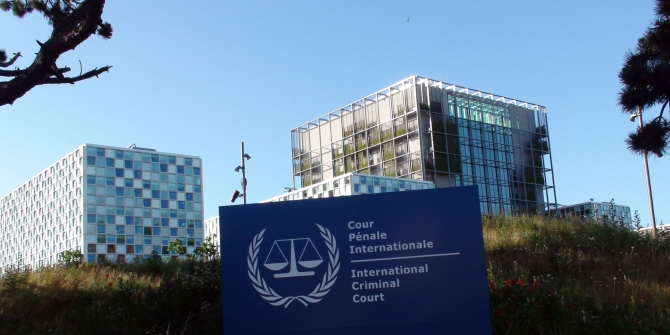Dr José Bazonzi talks to JSRP Research Manager Henry Radice about his recent research, and the current research environment in DRC.
You focus in your work on the notion of fragmented justice. What do you mean by this?
When we look at justice provision in the area I work on, Muanda in Kongo Central, there really is a multiplicity of actors who intervene in the provision of justice. Beyond state justice providers, you also find customary authorities, and also traditional religious chiefs.
What are the social consequences of this fragmented justice picture?
It means many people are excluded and don’t have access to justice, due to the fact that state justice has the drawbacks of being expensive, slow, corrupt and distant. Traditional justice mechanisms only cover rural populations and aren’t competent to deal with penal cases. Traditional religious justice mechanisms (such as ACK – association confessionnelle kintuadi kia bangunza, KBA – kintuadi kia bangunza mu Afeleka, VUVAMU – vutuka vana mpambu uvidila or BDK – bundu dia Kongo ) only cover those specific religious communities, who feel marginalised and abandoned by the Congolese state. So each mechanism has its own exclusionary patterns and there are large gaps between them. Many people simply have no access to justice. They are unable to uphold their rights.

Photo Credit: MONUSCO/Myriam Asmani via Flickr (http://bit.ly/2rORmKs) CC BY-SA 2.0)
What is preventing state justice mechanisms from improving and filling some of those gaps?
The big problem in Muanda is the inexperience of young judges, who are badly paid, and thus vulnerable to rich and powerful elites. Justice goes to the highest bidder. I’ve seen a number of big land dispute cases, for example one in Banana village, and another in Muanda village, which have gone this way. And when judges rule the right way, either judgements aren’t enforced or are appealed further and further up the system, making it harder and more expensive for plaintiffs. And given the fragmentation of justice in Muanda, forum shopping is always possible.
Are these kinds of issues widespread in other areas you’ve worked on?
Yes, but with some differences. In some areas, you don’t find the religious justice dimension, but the same types of issues arise.
What should national and international actors do if they want to support access to justice?
The first thing both national and international actors need to do is to fully understand the complexity of the justice system on the ground. Secondly, they need to build better relationships between the three types of justice provision, rather than denying the reality of non-state justice provision, or simply not engaging with it. They need to support and reinforce all of the parts of the system, not just the state mechanisms. A holistic approach is most likely to both improve the quality of justice and widen access to justice.
What are the challenges facing researchers in Congolese universities?
First, the lack of interest within the government to finance research. Second, academics often neglect research in favour of more political or lucrative endeavours. And generally, we face poor working conditions, with low salaries, bad internet access and libraries, low quality equipment.
What is the best way to support Congolese research capacity?
I think building international research teams where we can really work together, exchange ideas and share resources in the context of long term collaborations. This is what we’ve tried to do on JSRP.
This interview was first published on the Justice and Security Research Programme blog.
Dr José Bazonzi is a researcher on the Justice and Security Research Programme, based at the University of Kinshasa, where he is Associate Professor of Sociology. He is an expert on justice and governance issues, international migration and development.
The views expressed in this post are those of the author and in no way reflect those of the Africa at LSE blog or the London School of Economics and Political Science.




